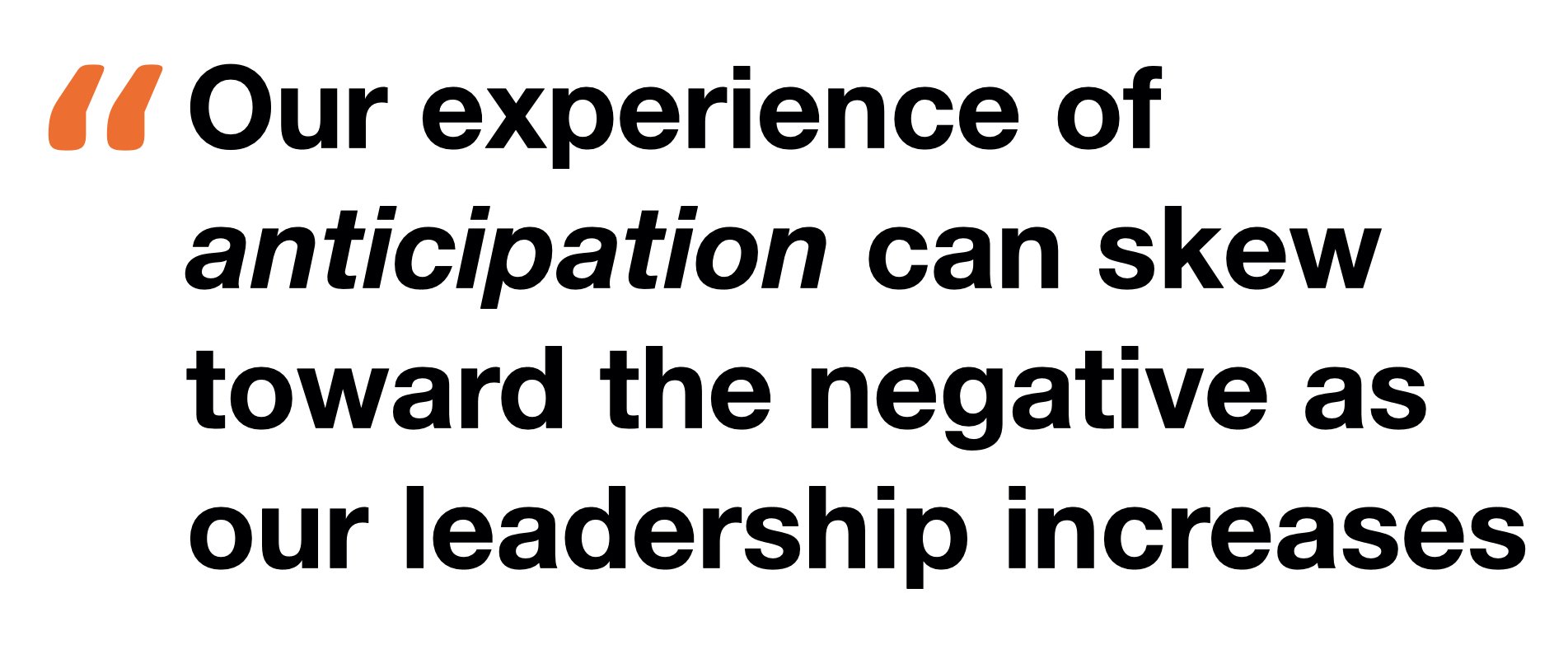Anticipation
“Fear is pain arising from the anticipation of evil.” Aristotle
One of my more painful sports memories was a loss on the last play of the game against a rival, made more lasting and excruciating for me as I was the one with the ball in my hands and the ability to, in large measure, affect the outcome.
In the days (and years) after, I realized a major factor in my mental and physical performance in that moment had been dictated not by the opponent, nor the situation, nor the play call or field position, but by this: I hadn’t fully anticipated the game coming down to me on the final play. As prepared and pumped as I was for the game, I hadn’t visualized that moment adequately…and the pressure got to me. I hurried the play, rushed the pass, and down fell the ball—with hopes, and dreams—upon the gridiron grass.
You can see I’ve turned pain into poetry over the decades. But along with amateur verse, that contest provided me an important lesson in mental preparation, and not just for the high school stadium.
There’s a quote famously (or infamously) attributed to Wayne Gretzky that succinctly distills that lesson (as well as what set “The Great One” apart on the ice): “I skate to where the puck is going, not where it has been.” It’s a statement that has been borrowed, modified, and deployed in many other domains in society, as it highlights a central attribute of successful performance: anticipation.
Whether in sport, business, military operations, or household planning, the ability to anticipate “where the puck is going” (i.e., not what the data is, but what it’s pointing to) is what allows us as individuals and leaders of teams to be in the right position when the puck—the possibility, the problem, the pressure—arrives.
History is replete with examples of leaders anticipating—or not—the outcomes of action or inaction. Whether Churchill’s response to the Munich Agreement, King’s forecasting of police action and public opinion at Selma, or the lead-up to 9/11—anticipation (or lack of it) made all the difference.
It is the same for us as leaders, and not just in our ventures and organizations. In our marriages, anticipation helps us perceive seasons of obstacles or opportunities. In our parenting, it aids us in preparing for the changes and challenges inherent to growing with our sons and daughters. And in our own daily life, anticipation allows us to identify temptations and distractions as they emerge…as well as the small delights divinely placed in our path.
But anticipation is not solely a cool, dispassionate preparation for circumstances and events. It has an emotional edge, one captured by the definition of it as “a feeling of excitement about something that is going to happen in the near future.” In that sense, it’s quite literally a form of arousal, and is indicative of arousal’s power, in that it is the present response to future pleasure and fulfillment.
That second meaning, that connection to joy and delight, is what seems to wane as the years wax. Our experience grows, our professional insight may increase, but throughout midlife our excitement about what’s next, our eagerness for tomorrow and its new discoveries, tends to erode.
Indeed, our emotional experience of anticipation skews toward the negative as our leadership responsibilities increase; joy and delight give way to anxiety and impending peril. We more easily anticipate the other shoe dropping than we do the curtain lifting on some new act and scene.
Why is it that anticipation becomes more of a spiritual and emotional depressant than stimulant as we walk through this stage of the journey? Let’s go to the word itself.
The English word anticipation comes to us from the Latin anticipationem, which in the fourteenth century meant “foreshadowing”. That was formed from ante- (“before”) and capere (“to take or grasp”), literally “taking into possession beforehand”.
Two reasons for the midlife miasma come into focus. One is that our natural response to “foreshadowing” is dread—because aging, weakening, and dying are the natural course of things. The supernatural response, however, is eager expectancy; after all, Holy Writ closes with a revelation, not a conclusion (in the Greek, an apokalypsis—an unveiling, not an undoing).
Second, in the grinding gauntlet of this life stage, we tend to not only not take possession of things beforehand, but indeed, to bemoan all of the things not in our possession at all. That achievement, that asset base, that free time, that lifestyle—whatever is just out of reach connives its way to the forefront of our mind. We tell ourselves it is inducement, even when it collapses into imprisonment.
Such is the station of a dutiful servant. But it is not the status of a beloved son.
A son experiences the exuberant anticipation of one who is attended to, one who is provided for today and planned for tomorrow. Most importantly, a son is an heir—a possessor of the legal right to things in existence, right now, even if their distribution is yet for an appointed time.
No striving, no chasing, no precarious wandering like a parentless child scavenging city streets. Rather, a restful waiting and reverent watching for the passage and provision unveiled by a good Father, who supplies the wisdom and the will to walk through the valley, no matter how shadowy it is at the fore.
The sooner we grasp that, the better.
“For the creation eagerly waits with anticipation for God’s sons to be revealed.”
Romans 8:19


